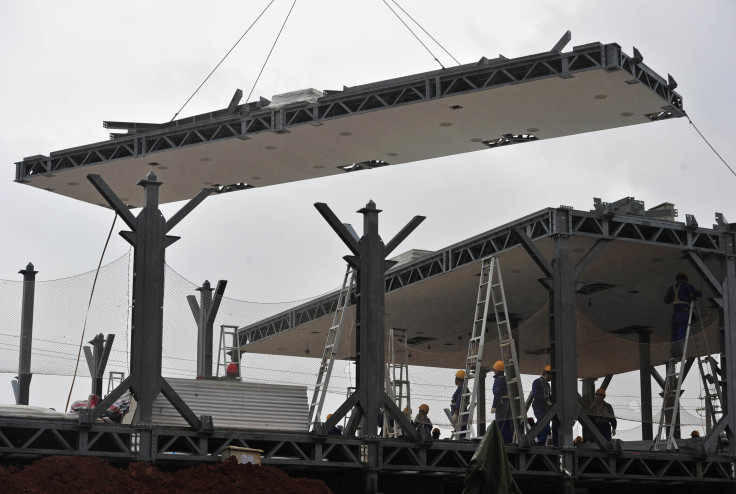China Real Estate, Industrial Production To Take Biggest Hit From GDP Slowdown

Data revealed Tuesday showed China’s economy is continuing to slow, growing in the third quarter at its slowest pace in five years. A 7.3 percent year-on-year growth is still a much more rapid pace of growth than in the United States or the European Union, but the slowdown is expected to have a profound effect on China’s real estate sector and industrial production.
“The biggest macro risk, currently, is real estate,” Andrew Polk, an economist at the Conference Board China Center for Economics and Business in Beijing, said in a phone interview. “You’ve got prices falling throughout the country, you’ve got the [People's Bank of China] trying to lower mortgage rates through the banks and funnel cash into the household sector, and still you’ve got purchases slowing, you’ve got real estate investment slowing.”
The real estate industry accounts for 20 percent of the country’s economy, Polk said, with no other sector coming close. "If you want to look at what’s driving the slowdown, you look at real estate, you look at overall investment, and you look at industrial production,” he said.
“From a regional standpoint, it absolutely is hitting different regions more deeply than certain others,” Polk said. Some regions of China will feel the effects of the slowdown more because of a disproportionate reliance on the real estate industry. “Certain provinces have increased real estate investment, by anywhere between 300 and 500 percent over the past five years, [and] as the real estate downturn deepens, those provinces are getting absolutely hammered -- provinces like Guizhou, Qinghai, Hainan,” in the west and south of the country, Polk said.
In addition to real estate, “you can see that there is a manufacturing and exporting problem,” Peter Cardillo, the chief market economist at Rockwell Global Capital, said in a phone interview. “The manufacturing sector has gotten hit, [and] that basically supports the notion that the global economy is going to continue to slow a bit further.”
But the slowdown continues to permeate beyond that, Polk says.
“Even in the fast-moving goods sector, like consumer goods, chains would build new stores and stock the stores in anticipation of high demand," Polk said. “You’ve got high inventory in almost every sector in the economy, and now demand is falling off, and investment is starting to fall off, so companies are now having to sell some of that inventory. When you start selling your inventory, you stop manufacturing new goods, and that’s one of the things that’s driving weak industrial production.”
© Copyright IBTimes 2024. All rights reserved.












